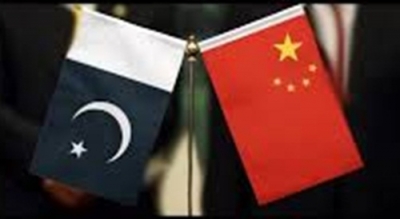Islamabad: Cash-strapped Pakistan has secured a $655 million financing package, including an expensive $300 million loan at market rates, from the Asian Development Bank; days after Finance Minister Shamshad Akhtar declared the country’s public debt as ‘unsustainable’.
The ADB approved a financing package for Pakistan under three different loans. Among other components, these include $300 million for improving domestic resource mobilisation; $275 million for rehabilitating schools damaged by the devastating August 2022 floods; and USD 80 million for enhancing agricultural productivity to improve food security, according to an announcement by the ADB Wednesday.
The announcement by the Manila-based lending agency came as the World Bank’s Debt Management and Sustainability Mission met with Finance Minister AKhtar to review the debt management of the country, reported the Express Tribune newspaper.
Last week, Dr Akhtar announced that Pakistan’s debt burden has become “unsustainable” — a notion to which World Bank’s Vice President for South Asia Martin Raiser did not agree. In an interview, Raiser described the country’s debt as “sustainable.”
The ADB is already paying the salaries of half of the staff of Pakistan’s Debt Management Office, which should ideally be paid by Pakistan’s finance ministry.
Despite pronouncing the debt unsustainable, Pakistan has contracted one of the expensive loans by the multilateral lenders, which mostly give financing at concessional rates.
The $300 million loan will have a 15-year term, including a grace period of three years; an interest rate determined in accordance with ADB’s Flexible Loan Product; a commitment charge of 0.15 per cent per year; and such other terms and conditions set forth in the loan agreement, according to the ADB documents.
The Flexible Loan Product is a market-based floating rate lending instrument and at current market prices, it would cost Pakistan over 6 per cent interest –a cost that is almost three times higher than the concessional lending by the World Bank and the ADB.
The 15-year tenor of the ADB loan is also relatively shorter than its previous financing to Pakistan.
Despite plunging deeper into the debt trap, Pakistani authorities are taking loans for a purpose that only needs a strong will. Earlier, the Pakistan Tehreek-e-Insaf (PTI) government took a $400 million loan from the World Bank for reforms in the Federal Board of Revenue.
The loan is taken in the name of reducing the tax gap to 20 per cent of the potential tax collection. The government and the ADB have used a three-year-old base to showcase the performance and set targets.
Similarly, the loan is being taken to reduce tax payment time compared to the 2020 base year, a task that needs efficiency, not foreign money. Under other goals, Pakistan will reduce the budget deficit, consolidate the single treasury account mechanism, and very nominally improve foreign direct investment and domestic savings ratio – goals that again do not need foreign funding.
Pakistan’s tax revenue performance is comparatively weak with tax collections as a share of GDP declining from 10.8 per cent in FY2018 to 10.1 per cent in FY2022, falling short of comparator countries in the region whose tax collection averaged between 14 per cent and 17 per cent of GDP, according to the ADB.
The ADB stated that several factors contribute to this situation, including the complex tax system, a high level of informality in the economy, and weak tax administration, all of which result in a low tax compliance rate.
The official handout stated that the $300 million policy-based loan will support the initiative’s first sub-programme, which focuses on laying the foundation for reforms to policies, laws, and institutional capacity that will improve domestic resource mobilisation and utilisation.
The Express Tribune reported that the ongoing Sindh Secondary Education Improvement Project will receive additional financing—a $275 million emergency assistance loan that is part of ADB’s $1.5 billion pledge of support for Pakistan’s recovery from the devastating 2022 floods, according to the ADB.
A concessional loan of $80 million for the Khyber Pakhtunkhwa Food Security Support Project, which is also part of ADB’s $1.5 billion pledge of support for Pakistan’s recovery from the 2022 floods, will help address climate vulnerabilities, enhance food security, and boost the livelihoods of rural farm households in the most flood-damaged districts in the province, said the ADB.
PTI
